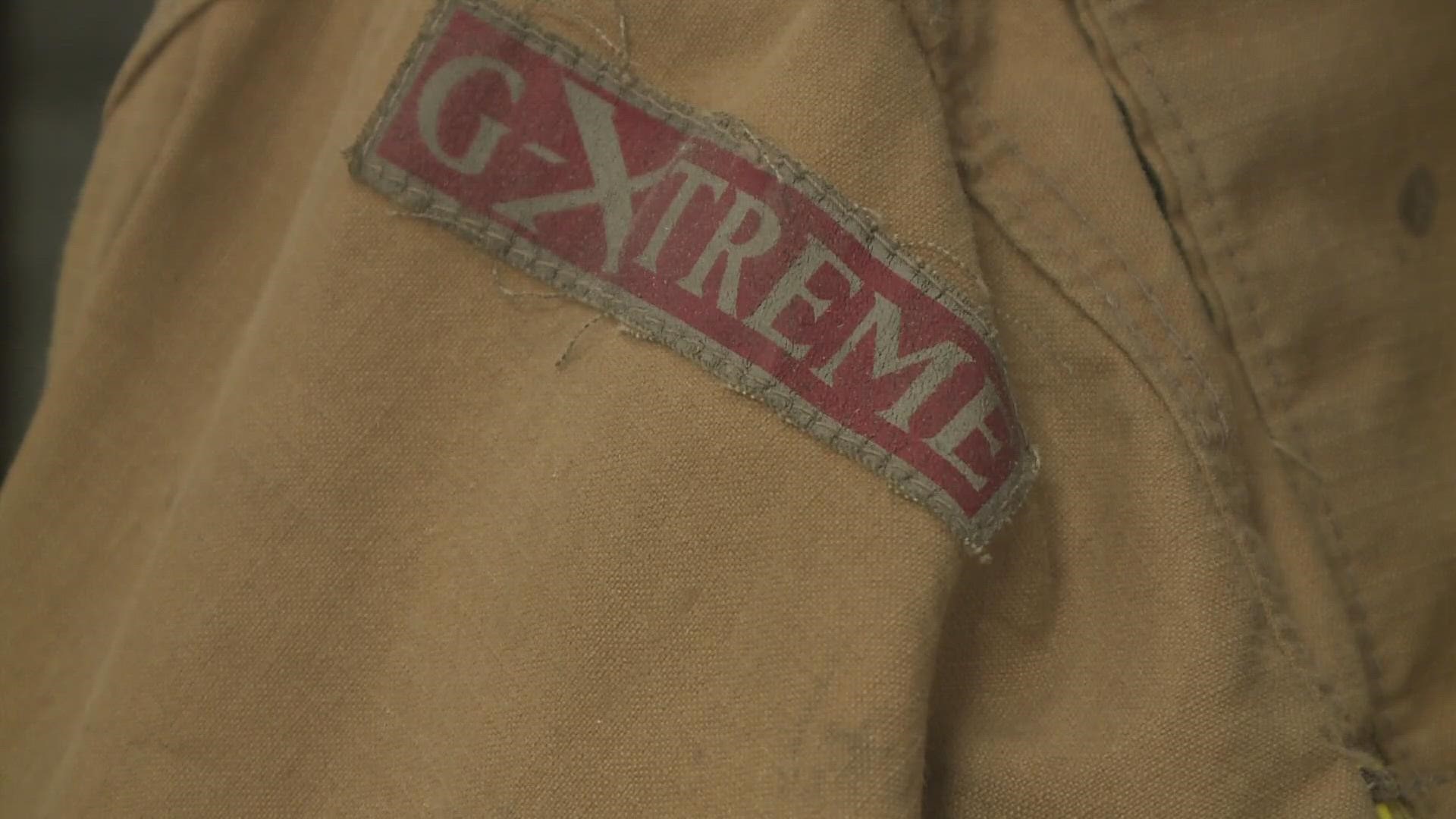OGUNQUIT, Maine — A nationwide push by firefighters to remove toxic PFAS chemicals out of the very gear designed to save their lives is a step closer to reality.
Earlier this week, regulators approved new national standards for fire-resistant equipment known as turnout gear to be made without the industrial compounds.
Firefighters say years of exposure are causing serious health problems are affecting them. And they already have one of the highest rates of job-related cancer deaths in the country.
Edward Kelly is the general president of the International Association of Fire Fighters, which represents tens of thousands of firefighters and paramedics, including Mainers. He said exposure to toxic PFAS chemicals in protective equipment is fueling a cancer epidemic among first responders.
"Cancer is killing firefighters, 75 percent of the names we put on our firefighting memorial in Colorado Springs, succumb to job-related cancer, it's staggering," Kelly said.
Turnout gear is three protective layers designed to keep firefighters safe from flames and heat. The inner layer is treated with PFAS chemicals to withstand very high temperatures. But fire departments can't replace the gear, because the national standards for fire-resistant gear still include toxic compounds.
But after hearing from Kelly and other firefighters, the National Fire Protection Association Technical Committee earlier this week approved PFAS-free turnout gear as a new national standard, allowing manufacturers to make safer equipment.
"I think everything we can chip away at is beneficial to the firefighter," Chief Russell Osgood with the Ogunquit Fire Department said.
Osgood said getting rid of PFAS chemicals is long overdue. He serves on the nonprofit National Firefighter Cancer Support Network which works to educate first responders about the risks of the disease.
But he added replacing the gear, which can cost up to five thousand dollars each, will be a financial burden that needs to be addressed as well.
"There are a lot of smaller fire departments that don't meet the current standards, changing the standard is one step, the next would be to find the funding to replace the turnout gear," Osgood explained.
Right now, Osgood said his firefighters only wear their turnout gear to calls that involve attacking fires. They also wash down their turnout gear equipment and take showers to lower their exposure.
The new standards will go into effect in 2025. When PFAS-free gear becomes available, the IAFF plans to conduct independent testing to ensure it's non-toxic and effective in protecting firefighters. Because, they say, the only hazards they should be facing when going out on a call are ones they aren't already carrying with them.

